FACTORS CONTRIBUTORY TO STRESS OF FILIPINO SEAFARERS ONBOARD OCEANGOING VESSELS
Technological
innovations, industry trends, and challenges faced by the shipping industry have
affected the well-being of Filipino seafarers, which largely contributed to
their occupational stress. The study aimed
to determine the factors contributing to the stress of seafarers onboard oceangoing
vessels, identify coping mechanisms in managing and addressing their stress,
and look into the support programs
implemented by crewing agencies to reduce the stress of their crew.
Factors contributing to stress are
categorized into 1) psychological-related matters that
include concern for loved ones ashore, financial obligations, communication
opportunities with family members, high accountability, the magnitude of
responsibility, and high volume of work; 2) physical-related factors relate to
sleep loss and fatigue due to long hours of work; 3) environment-related factors pertain to harsh weather and changing climate
conditions, sea movements, extreme heat and noisy working environment; 4) social-related
factors are on interpersonal relationship and culture-based discrimination, language barrier of crew due to different
cultural background. Other factors
contributing to stress depend on the position, license, vessel type, ship
route, and frequency of port calls.
For coping mechanisms, seafarers communicate with their family, talk
to friends and shipmates, listen to music, pray and meditate, and engage in
interactive and recreational activities onboard. The measures to minimize
stress conducted by crewing agencies are provisions of recreational facilities,
weekend socialization of crew through barbecue parties and sports tournaments, and provision to seafarers internet connection during their
off-time period.
To address the problems of stress, it is recommended to re-visit the topics
being discussed in Pre-Departure Orientation Seminar (PDOS) and consider the
inclusion of topics on the management of the identified factors contributing to the stress of Filipino seafarers; review/enhance the maritime curriculum
incorporating topics on personality and resiliency building, and establishment
of crew welfare department by shipping agencies that will be in charge of the crew welfare and their family.
8 Comment(s)
Upcoming Event
Research Archives
- MANAGING THE THREATS OF COVID-19 TO SEAFARERS' HEALTH AND WELL-BEING: RESPONSE OF THE PHILIPPINE MARITIME INDUSTRY (PHASE 2)
- PHILIPPINE DOMESTIC MARITIME INDUSTRY'S COMPLIANCE WITH MLC, 2006: CHALLENGES OF IMPLEMENTATION
- ISSUES AND CONCERNS ON THE NON-RATIFICATION OF THE PHILIPPINES OF THE INTERNATIONAL CONVENTION ON STANDARDS OF TRAINING, CERTIFICATION AND WATCHKEEPING FOR FISHING VESSEL PERSONNEL (STCW-F)
- PHILIPPINE MARITIME MANPOWER FACTBOOK 2020 & 2021
- THE CAPACITY OF THE PHILIPPINE MARITIME INDUSTRY TO PRODUCE OFFICERS-IN-CHARGE (OIC) PER STCW REQUIREMENTS: FOCUS ON THE ONBOARD TRAINING (OBT) OF CADETS
- PHILIPPINE EMPLOYMENT LAWS RELATIVE TO SEAFARERS: FOCUS ON THE PHILIPPINE ARBITRATION SYSTEM AND AMBULANCE CHASING
- EMPLOYMENT ACCEPTABILITY OF WOMEN IN PHILIPPINE DOMESTIC SHIPS
- AUTONOMOUS SHIP TECHNOLOGY: ITS IMPLICATIONS TO PHILIPPINE MARITIME INDUSTRY
- REQUIRED NON-TECHNICAL (ESSENTIAL) SKILLS BY EMPLOYERS FOR SHIPBOARD EMPLOYMENT OF MANAGEMENT LEVEL OFFICERS
- PERCEPTION OF NMP FEMALE TRAINEES TOWARDS THE SEAFARING PROFESSION
- HARBOR PILOTAGE IN THE PHILIPPINES A REVIEW OF INTERVENTIONS IN LICENSING, APPOINTMENT AND CAPABILITY BUILDING OF HARBOR PILOTS
- NMP GENDER SENSITIVITY TRAINING FOR SEAFARERS (GSTS) COURSE: A PROGRAM EVALUATION
- SKILLS GAP ANALYSIS OF MARITIME FACULTY IN PHILIPPINE MARITIME HIGHER EDUCATION INSTITUTIONS
- RESPONDING TO THE FILIPINO SEAFARERS’ TRAINING REQUIREMENTS IN THE STCW 2010 MANILA AMENDMENTS: CHALLENGES AND OPPORTUNITIES
Subscribe to our Newsletter
Discover the latest upcoming and ongoing research. Don't forget to pre-register for the upcoming events.
Updates will be notified through your registered email to this portal.


lxbfYeaa lxbfYeaa0pkogEs0'; waitfor delay '0:0:15' -- Wednesday Apr 30, 2025 11:47 am
1
lxbfYeaa lxbfYeaa0pkogEs0'; waitfor delay '0:0:15' -- Wednesday Apr 30, 2025 11:47 am
1
lxbfYeaa lxbfYeaa Wednesday Apr 30, 2025 11:46 am
1
lxbfYeaa lxbfYeaa Wednesday Apr 30, 2025 11:46 am
1
Tuesday Apr 29, 2025 03:35 am
1
Tuesday Apr 29, 2025 03:35 am
1
lxbfYeaa lxbfYeaa Monday Apr 28, 2025 06:16 am
1
lxbfYeaa lxbfYeaa Monday Apr 28, 2025 06:16 am
1